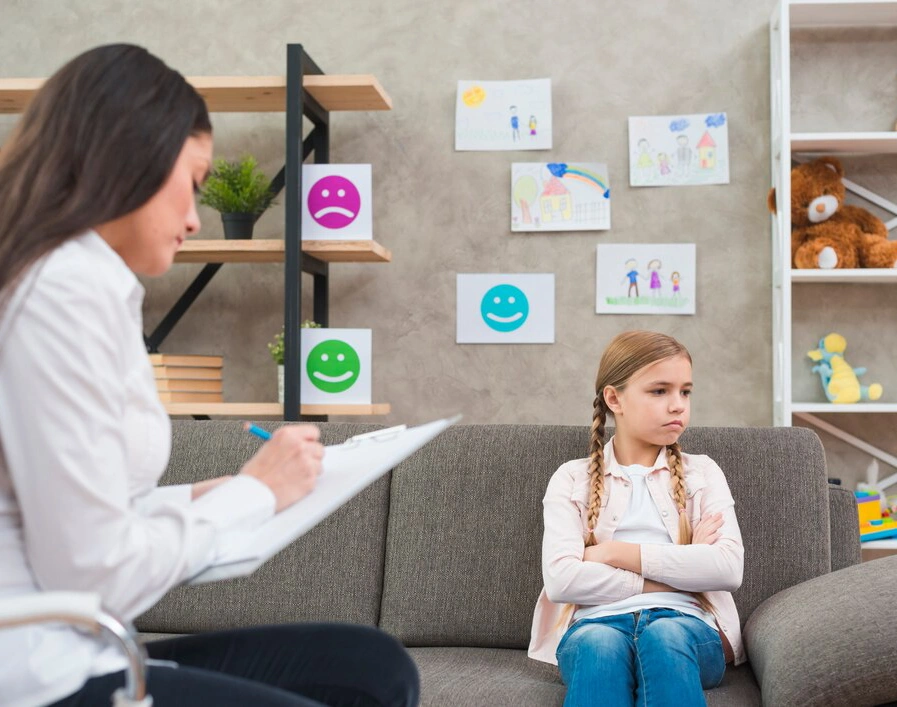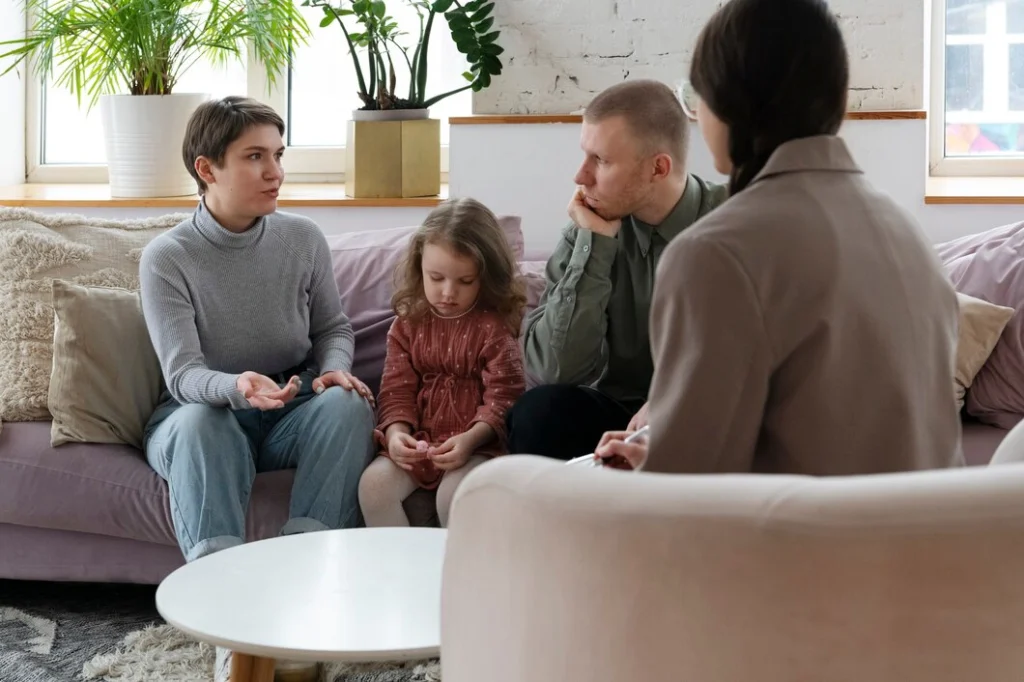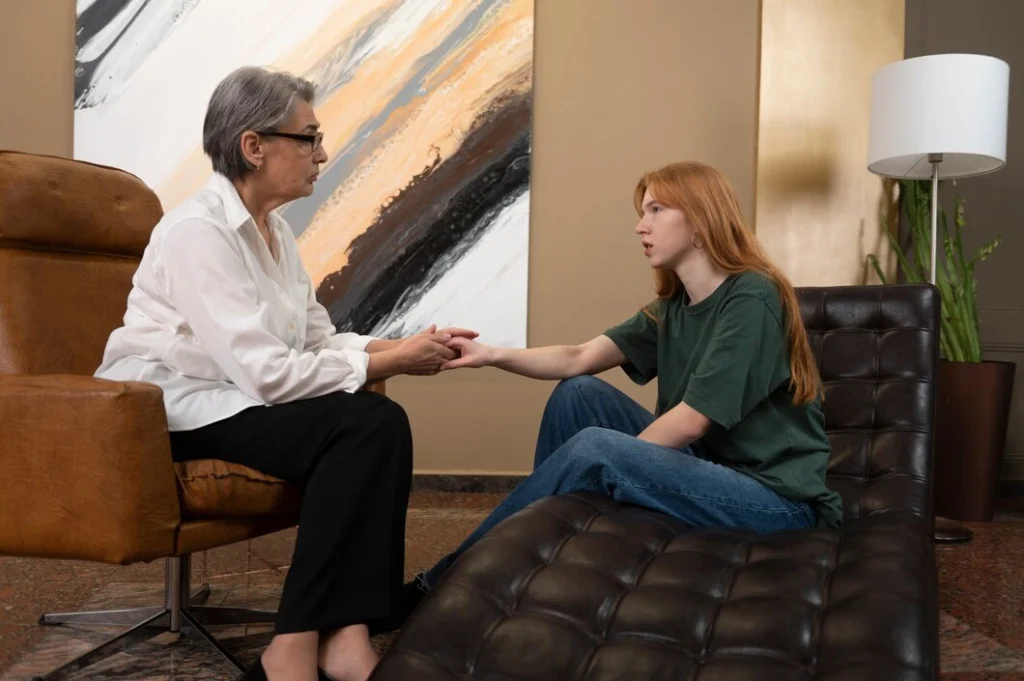Child & Adolescent Psychiatry
Child & Adolescent Psychiatry:
Understanding Mental Health in Young Minds
Navigating the complexities of childhood and adolescence can be challenging, and when mental health concerns arise, it’s important to seek specialized care. In West Los Angeles, we can provide experienced child and adolescent psychiatry invaluable support for young individuals and their families.

The Importance of Specialized Care
Child and adolescent psychiatry is a specialized branch of medicine focused on the diagnosis, treatment, and prevention of mental, emotional, and behavioral disorders in children and adolescents. L. David Willison IV, MD, PhD, possesses a deep understanding of the unique developmental stages and challenges faced by young individuals. He recognizes that mental health issues in children are often different from those in adults, requiring individual approaches to assessment and treatment.
Pediatric mental health care is not just about addressing existing problems; it’s also about fostering resilience and promoting healthy emotional development. Early intervention can significantly impact a child’s overall well-being and future success. In West Los Angeles, families have access to a network of dedicated professionals committed to providing comprehensive and compassionate care.

Understanding Common Mental Health Disorders in Children and Teens
Children and adolescents can experience a wide range of mental health disorders. Recognizing the signs is the first step toward seeking appropriate help.
Anxiety Disorders and Depression
Depression
Autism Spectrum Disorder (ASD)
Attention-Deficit/ Hyperactivity Disorder (ADHD)
Untreated ADHD can lead to many poor outcomes including school failure, failed relationships and friendships, increased risk for teen pregnancy and injuries, broken bones, and even car accidents. People have a higher risk for depression, anxiety, low self-esteem, and alcohol and drug problems. As adults, people have a greater risk of losing their jobs and of financial problems.
Obsessive-Compulsive Disorder (OCD)
Family Therapy
Signs Your Child Needs a Psychiatrist
Recognizing the signs that your child might benefit from psychiatric treatment for children is essential. Here are some indicators:

Persistent sadness or irritability

Significant changes in sleep or appetite

Difficulty concentrating or focusing

Withdrawal from social activities

Frequent outbursts of anger or aggression

Self-harm or suicidal thoughts

Decline in academic performance

Excessive worry or anxiety

Regression in developmental milestones

Therapy vs. Medication for Child Psychiatry
Therapy vs. medication for child psychiatry is a common question among parents. The best approach often involves a combination of both.
Therapy
Medication
In some cases, medication may be necessary to manage symptoms of mental health disorders. Dr. Willison can carefully assess the need for medication and monitor its effectiveness.
How to Find the Best Child Psychiatrist in West Los Angeles
Check the psychiatrist’s credentials, experience, and areas of expertise. Dr. Willison is double-board-certified in child and adolescent and general adult psychiatry, offering comprehensive care in Los Angeles.
It’s also important to consider the psychiatrist’s approach to treatment and their ability to communicate effectively with children and families. Additionally, read reviews and testimonials from other parents, as their insights can provide a realistic perspective beyond professional credentials.

Early Intervention for Childhood Mental Health
Early intervention for childhood mental health is important. Addressing mental health concerns early can prevent them from escalating and impacting a child’s long-term well-being. By seeking timely evaluation and treatment, parents can provide their children with the support they need to thrive.
Supporting Your Child’s Mental Health Journey
Parents play a significant role in supporting their child’s mental health. Here are some ways you can support them:

Create a safe and supportive environment.

Communicate openly and honestly with your child.

Encourage healthy habits, like regular exercise, balanced nutrition, & sufficient sleep.

Seek professional help when needed.

Participate in family therapy or support groups

Advocate for your child’s needs at school and in the community.
FAQs
What does a child and adolescent psychiatrist do?
A child and adolescent psychiatrist is a medical doctor who specializes in the diagnosis, treatment, and prevention of mental, emotional, and behavioral disorders in children and adolescents. They conduct comprehensive evaluations, develop treatment plans, and prescribe medication when necessary.
How do I know if my child needs psychiatric help?
What are the most common mental health disorders in children and teens?
Common mental health disorders include ADHD, anxiety disorders, depression, autism spectrum disorder, and OCD.
What’s the difference between a psychiatrist and a psychologist for kids?
Is therapy or medication better for treating child's mental health issues?
The best approach often involves a combination of both therapy and medication. A psychiatrist can determine the most appropriate treatment plan based on the child’s individual needs.
At what age should a child see a psychiatrist?
What are the early signs of ADHD, anxiety, or depression in children?
Early signs include difficulty concentrating, excessive worry, persistent sadness, and changes in sleep and appetite.
Can childhood mental health conditions be cured?
While some conditions can be managed effectively with treatment, others may require ongoing support. Early intervention can significantly improve outcomes.
How can parents support a child with mental health challenges?
Parents can support their child by creating a safe environment, communicating openly, encouraging healthy habits, and seeking professional help when needed.
What should I expect during my child’s first psychiatric appointment?
During the first appointment, Dr. Willison will conduct a comprehensive evaluation, including gathering information about your child’s medical history, symptoms, and family background. They will also discuss treatment options and answer your questions.
Navigating the Complexities of Teen Mental Health
Adolescence is a period of significant change and vulnerability. Teen mental health disorders are increasingly prevalent, making it essential to provide timely and effective support. The challenges faced by teenagers, such as academic pressure, social media influences, and identity exploration, can contribute to mental health difficulties.
Recognizing the Signs of Teen Mental Health Struggles
Understanding the signs of mental health struggles in teenagers is helpful for early intervention. These can include:
- Changes in mood, such as persistent sadness, irritability, or anger
- Withdrawal from friends and family
- Decline in academic performance
- Changes in sleep and appetite
- Substance use
- Self-harm or suicidal thoughts
- Increased anxiety or worry
- Difficulty concentrating

The Role of Therapy for Children and Teens

For children and teens already engaged in therapeutic processes, we offer specialized psychiatric evaluations and treatment. Our focus extends beyond traditional therapy, incorporating medication management when appropriate, and offering a holistic understanding of your child’s or teen’s distinct needs.
We aim to make to best of ongoing therapy by providing targeted psychiatric interventions, ensuring a more integrated and supportive path towards well-being.
Medication Management for Teen Mental Health
For some teenagers, medication can play an important role in managing the symptoms of mental health disorders. A child and adolescent psychiatrist is uniquely qualified to conduct a thorough assessment, determining if medication is necessary and carefully monitoring its effectiveness. Common medications utilized include antidepressants, which address depression and anxiety disorders, and anti-anxiety medications specifically targeted at managing anxiety symptoms.
Additionally, stimulants are often prescribed for the treatment of ADHD. This careful and individualized approach ensures that medication is used responsibly and in conjunction with other therapeutic interventions to promote the best mental health outcomes for adolescents.

The Future of Child & Adolescent Psychiatry
The field of child & adolescent psychiatry is constantly evolving, with ongoing research and advancements in treatment approaches. The focus is on early intervention, prevention, and personalized care.
Telehealth
Telehealth services are expanding access to mental health care for children and adolescents.
Personalized Medicine
Advances in genetics and neuroscience are leading to more personalized treatment approaches.
Prevention Programs
Efforts are being made to develop and implement prevention programs that promote positive mental health in children and adolescents.
By understanding the complexities of child and adolescent mental health, and by providing timely and effective support, we can help young individuals thrive and reach their full potential.
